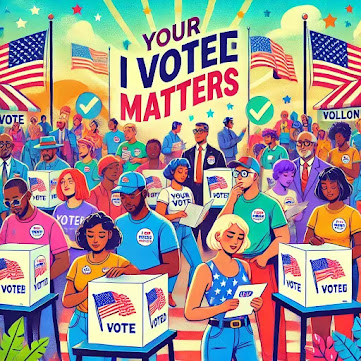The Call for Reparations: Black Lives Matter, Global Justice, and Project Drive's Commitment to Empowerment
In a world marked by systemic racism and colonialism, the suffering of Black and Indigenous communities remains a painful legacy that demands urgent redress. The call for reparations has gained momentum as movements like Black Lives Matter (BLM) lead the fight for justice on a global scale. At the heart of this struggle is the recognition that the historic and ongoing exploitation of these communities has left them disenfranchised, impoverished, and subjected to relentless violence.
At Project Drive Inc., we are deeply committed to supporting this call for justice, understanding that our mission to empower young people must be rooted in a broader commitment to addressing the systemic inequalities that have long oppressed marginalized communities. Our work is not just about providing resources and opportunities; it is about advocating for a world where the historical wrongs inflicted on Black and Indigenous people are acknowledged and rectified.
The Legacy of Injustice: A Historical Reckoning
The global acknowledgment of atrocities such as the Holocaust highlights a glaring discrepancy in the way the world has responded to the genocidal histories faced by Black and Indigenous populations. While the six million Jewish lives lost during the Holocaust are rightly remembered, the millions of Black and Indigenous people who were killed, displaced, or enslaved over centuries are often forgotten. This selective recognition of historical suffering perpetuates the very inequality that reparations seek to address.
At Project Drive, we understand that the call for reparations is not just about financial compensation. It is about addressing centuries of violence, exploitation, and systemic oppression that have left deep scars on Black and Indigenous communities. Our programs aim to empower young people by educating them about these histories and equipping them with the tools to advocate for justice in their own lives and communities.
Black Genocide and Colonialism: A Shared Legacy of Oppression
The transatlantic slave trade and the colonization of Indigenous lands represent two of the most egregious examples of systemic racism and genocide in history. The forced displacement of millions of Africans and the systematic extermination of Indigenous populations have left a legacy of trauma that continues to shape contemporary realities. The ongoing impact of this history is one of the central reasons why reparations are necessary—to acknowledge and rectify the generational trauma inflicted on Black and Indigenous people globally.
Project Drive is committed to educating our youth about these histories and empowering them to become advocates for change. We believe that understanding the past is essential to shaping a more just future. By providing our young people with the knowledge and tools to challenge systemic oppression, we are helping to build a generation that is equipped to fight for justice on a global scale.
The Global Fight for Reparations: A Movement for Justice
The demand for reparations is not confined to the United States; it is a global movement that calls for the recognition and redress of historical injustices suffered by Black and Indigenous people worldwide. Movements like BLM have been at the forefront of this struggle, highlighting the interconnectedness of these issues and the need for a coordinated, international response.
At Project Drive, we stand in solidarity with these global movements. We recognize that the fight for reparations is about more than just economic compensation—it is about restoring dignity, humanity, and justice to those who have been systematically oppressed. Our programs are designed to empower young people to become leaders in this fight, advocating for policies that address the root causes of inequality and work toward a more just and equitable world.
Examples of Reparative Justice: Learning from Global Precedents
The global conversation about reparations often focuses on the United States, but there are numerous examples from around the world that demonstrate the potential for reparative justice. From the reparations given to Jewish survivors of the Holocaust to the compensation offered to Japanese Americans interned during World War II, these examples show that reparations are not just a theoretical idea but a tangible solution to addressing historical wrongs.
At Project Drive, we draw inspiration from these global precedents as we advocate for justice within our own communities. We believe that reparations are essential to healing the wounds of the past and building a future where all people are treated with dignity and respect. By empowering our young people to understand and engage with these issues, we are helping to create a generation that is committed to justice and equality for all.
Project Drive's Commitment to Empowerment and Justice
As we reflect on the call for reparations and the fight for global justice, Project Drive is committed to being a part of this movement. Our mission to empower young people is inextricably linked to the broader struggle for justice and equality. We understand that true empowerment requires not just providing resources and opportunities, but also addressing the systemic inequalities that have long oppressed marginalized communities.
Through our programs, we are helping to educate and empower the next generation of leaders who will carry forward the fight for justice. We believe that by working together, we can build a world where the historical wrongs inflicted on Black and Indigenous people are acknowledged, addressed, and ultimately, healed. The call for reparations is a call for justice, and Project Drive is proud to stand with those who are leading the way.











Comments
Post a Comment